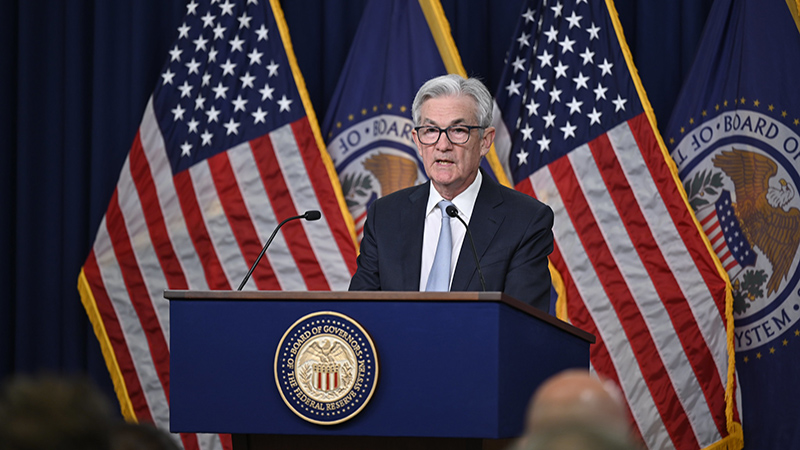Markets have been on the front foot so far this week in the wake of the rescue of Credit Suisse via a forced takeover by its greatest rival, UBS.
Perhaps surprisingly, governments and regulators acted swiftly and effectively to prevent a disorderly collapse of the Swiss bank that would undoubtably have had a devastating impact on markets.
Stocks rose on Monday and Tuesday, although not dramatically. That is as close to a seal of approval for the Swiss deal from investors as anyone could reasonably hope for.
The positive reaction in the markets can also in part be explained by the proximity of the Federal Reserve’s next meeting and rates decision, which happens to be this Wednesday. The Bank of England follows on Thursday. Investors will be watching and listening more keenly than ever.
The meetings on either side of the Atlantic are a real rarity in being highly unpredictable. Central bankers go to great lengths to gently guide the market on the policy path they intend to tread. There is also an army of economists and analysts collectively forming a consensus as the meetings come and go.
It takes a major change in circumstances to create great uncertainty over what the Fed or Bank of England will do next. That is exactly what we have now, following the collapse of SVB and Signature Bank in the US, and the rescue of Credit Suisse in Europe.
Ahead of central bank meetings investment banks and wealth management firms tend to churn out forecasts that are either all the same or very closely aligned. Not so this time around. All three options are being forecast by one major firm or another; raise, hold, cut.
The likeliest move by Jerome Powell and colleagues is a small 25 basis points (bps) final rise for this cycle, accompanied by dovish commentary. A rise of 50bps or more looks off the table due to the newfound concerns over the impact of monetary tightening on the banking system.
Going straight to a rate hold or cut is a real possibility. This may be perceived as an overreaction though, and a sign that the Fed is very worried worse is to come. That could spook investors and damage confidence. The FOMC will be very mindful of this.
Turning to Andrew Bailey and the Bank of England, a similar situation is evident. A notable difference is that Bailey and co have the benefit of seeing what the Fed does before making their move. While the Bank of England is free to act entirely independently of other central banks, in times of financial stress there will inevitably be some informal coordination.
CJ Cowan, portfolio manager at Quilter Investors, is among the many that sees the situation as finely balanced with inflation still being well above target, and expects the Fed to “proceed with caution”.
“It may be that a sustained pause at current rates would prove to be sufficient to gradually rein in inflation, but the political pressure to control inflation quickly is high,” Cowan said. “So even if [the Fed] does pause on Wednesday, then there could well be a few more hikes to go unless the economy slows much more quickly or further contagion in the banking sector is not prevented.”
“Following market turmoil in the wake of the SVB failure and Credit Suisse woes, markets have reined in previous hike expectations and are currently pricing a 44% chance of a 25bp rise in the Bank of England meeting this week,” said Steve Matthews, a fund manager at Canada Life Asset Management.
“This reflects the crossroads the Bank of England finds itself at following recent events and data; the UK economy narrowly avoided negative GDP growth in Q4 and Jeremy Hunt predicted last week that the UK will avoid a technical recession in 2023,” Matthews continued.
“Wage growth remains high but is slowing, whilst the latest labour market report showed continued tightness,” he continued. “This week’s BoE survey shows inflation expectations coming down, but it remains stubbornly high so far. On balance, we expect the BoE to raise its base rate by 25bp on Thursday to take it to 4.25% and to signal a pause in its hiking cycle, ultimately peaking at 4.25%. Future decisions will be data dependent, but we don’t expect any loosening until 2024.”











